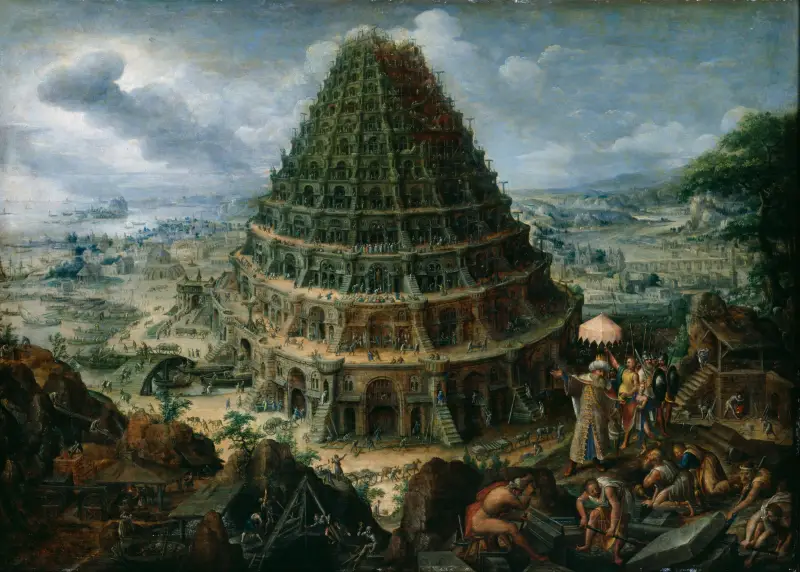When people want to take potshots at emergent Christianity, an easy bullseye to tag is its alleged lack of racial diversity. There’s nothing that progressive white Christians agonize over more and bust more radical Jesus jukes about than the lack of racial diversity in our movements. What’s obnoxious is when racial diversity is pursued for contrived, self-legitimating purposes rather than as a genuinely pragmatic collaboration between communities like the kind taking place in North Carolina’s Moral Monday movement. So what should progressive white evangelicals do about their racial homogeny when there isn’t an organic catalyst for cross-racial community building?
When I was a freshman at the University of Virginia, I decided that I was going to personally bridge the gap between black and white in the Christian fellowship community. I was naive, arrogant, but more or less well-intentioned. I organized a big evangelism rally called the Lovefest and invited the black gospel choir to be the main worship/entertainment and for the keynote speaker, I invited Bruce Beard, the pastor of the black First Baptist in Charlottesville, Virginia (there was also a white First Baptist).
Though I didn’t disclose this to anyone, my cynical hunch that I remember having was that white liberals would listen to a black man talk about Jesus and a black choir sing about Jesus whereas they would be offended if white people did that. So I was in effect putting on a minstrel show as an evangelism tactic. Maybe that’s too brutal a way to put it. I did have what I thought was a genuine vision of black and white people coming together and so forth. But it was all very contrived and naive.
I actually attended Pastor Beard’s church for several months and took great pride in being the only white guy there. I remember a letter I wrote that never got a response from Pastor Beard. I don’t remember the actual contents except that it was very presumptuous and paternalistic and talked about my great white plans to save the black kids in the church from the ghetto or something equally despicable. To this day, I shudder with shame when I remember that letter.
There was a black guy named Christopher Brown who was the head of a campus fellowship group whose name I can’t remember. We were meeting regularly for lunch that spring of my freshman year to “bridge the gap between black and white” or some generic feel-good racial project like that. I don’t think there was any real substance to what we were doing other than giving me the ego trip of being the important white hero who could talk to the black people.
It’s those cringeworthy memories of a somewhat well-intentioned but very privilege-oblivious and racially ignorant 19 year Morgan that come to mind when I hear people getting worked up about not having enough black speakers at an emergent Christian conference or things of that nature. (I haven’t yet looked closely at the demographics of faces at Wild Goose this year though it is the reason this question comes to mind.)
Malcolm X told white people the best thing they could do to support black people was to go back into their own communities and educate other white people while letting black people do their own thing in their community. We definitely have very different contexts in which we fight our spiritual battles. So is it okay for emergent Christianity to be a mostly white movement that exists to help white evangelicals deprogram from some of the more toxic aspects of our theology which in some cases are actually a source of our racism? Don’t our counterparts in churches of other cultures and races have a completely different set of issues to work through? How do we compare notes and collaborate in meaningful ways rather than feel like we’re supposed to have a healthy color balance on our conference speakers page for our self-legitimation?
These are questions I don’t know exactly how to answer. Some of the most formative theology I’ve read has been black and Latino liberation theology: James Cone, Gustavo Gutierrez, Jon Sobrino, Elsa Tamez, and my seminary theology professor J Kameron Carter. This is an ignorant thing to say aloud, but I do wonder sometimes if white progressive Christians are the ones who keep black and Latino liberation theology in business, like suburban white kids do with hip-hop, because the black and Latino pastors I know personally just don’t seem interested in the books I read that are written by others who look like them but seem worlds away theologically.
The pastors of other races with whom I have personal relationships at this point seem like they would consider liberation theology to be some form of communism. I’m too timid to bring it up with them. This doesn’t mean that I am unwilling to sit at their feet and learn from them, which I do, but there are places I don’t feel safe going (LGBT issues, my own ambivalence about consigning the Muslims and Buddhists to hell, etc). I usually just amen whatever I can in good conscience and we have good spirit-rich fellowship, but it’s not a space where I can really open up and explore full-throttle theologically.
It’s of course ridiculous to speculate about cross-cultural discourse in general based on my personal relationships. I just don’t feel like beating myself up anymore over the fact that, with a few important exceptions, I’m mostly talking to other white people when I really open up about my theology. I don’t want
that to be the case, but I feel funny about going out looking for more black people to talk theology with if there isn’t a more authentic purpose than to feel more racially legit.
Anyhow I’m not sure it needs to be a cause for anxious handwringing if emergent Christianity is in fact a mostly white response to a mostly white problem. The problem is when white progressive evangelicals falsely universalize our white people problems and imagine ourselves to be the center of Christianity (thank God the global church is getting browner every day!). But just because white ex-fundamentalist kids who stop going to church don’t speak for “all millennials” doesn’t mean that the only discourse which should exist is whatever lowest common denominator issue with which people of every race on the planet are equally concerned.
It will be awesome if there are lots of not-white people at Wild Goose this year. But if it’s mostly white people and we address some white people problems that make the world suck for other people, then that’s not a failure. I’m going to be mad if I see snobby blog posts trying to score radical Jesus juke points off the whiteness of Wild Goose if that ends up being the case. What does deserve critical
attentiveness is the ability of white dudes like me to set aside the messianic self-importance with which we have been socialized and be safe, hospitable conversation partners so that the table where we sit will be God’s table and not ours and all will be equally welcome.











